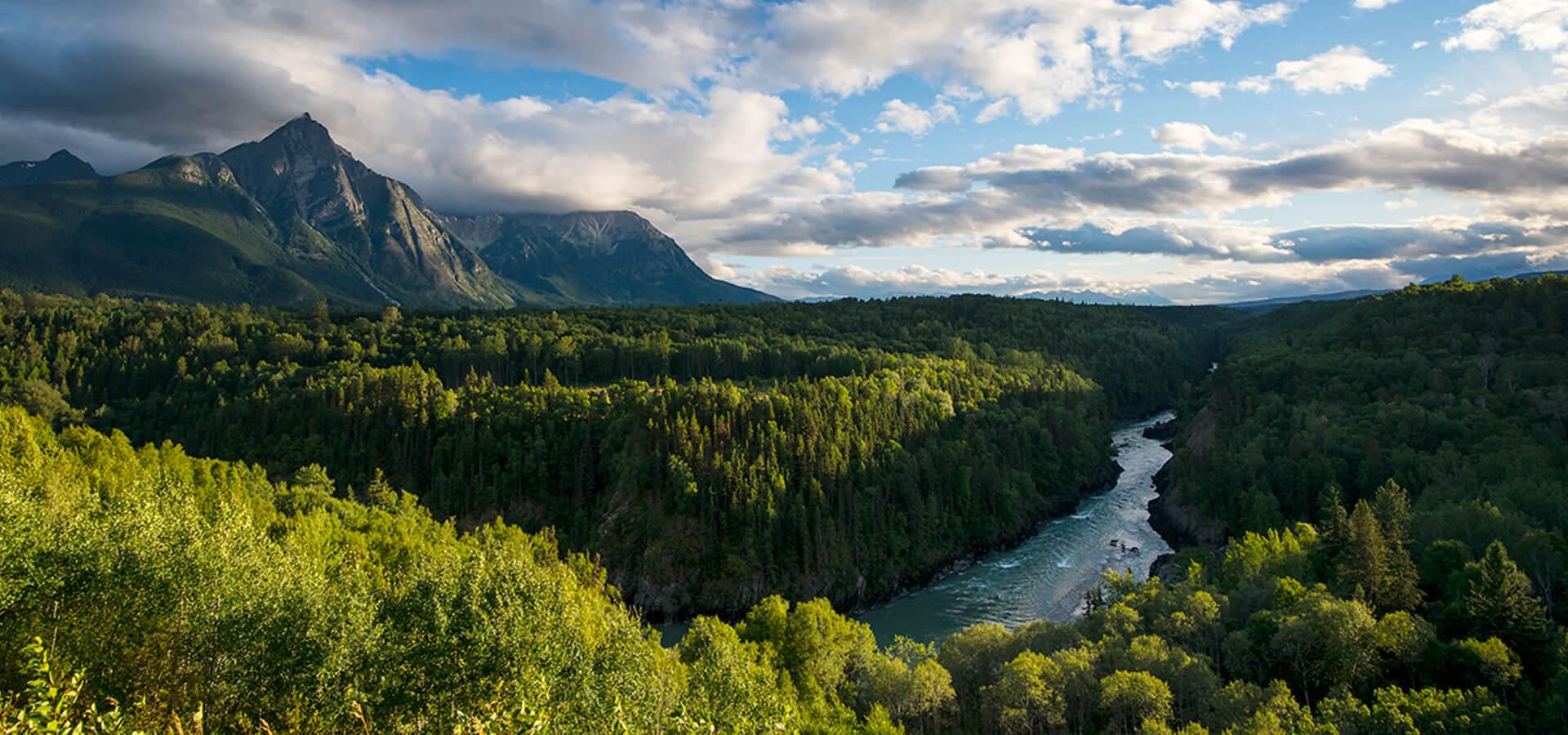Meet the Council
The Council’s membership reflects the diversity of British Columbia, with Indigenous perspectives, genders, backgrounds and experiences from all parts of the province. Council members were selected based on their demonstrated history of working creatively and collaboratively for the advancement of wildlife and habitat. See Council’s Terms of Reference for more information.
Appointments to the Council are for two-year periods and are extendable for up to two additional terms to a maximum of six years per person. Over time it is intended that appointment times will be staggered so that all members terms do not end at the same time.
Current Council Co-chairs
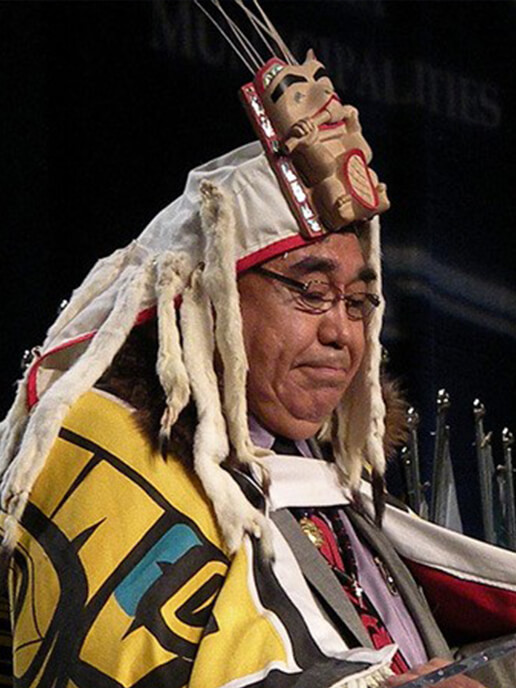
Simoogit Hleek (Chief Harry F. Nyce Sr.)
As one of the principal negotiators of the Nisga’a treaty in 1988, Harry Nyce was given the name of Sim’oogit Sagaw’een — Sim’oogit meaning chief and Sagaw’een meaning sharp tooth. His historical family name that belonged to a great hunter and fisherman. For the past year he has been honoured to serve on the First Nations – BC Wildlife and Habitat Conservation Forum and is currently the Director of Fisheries and Wildlife for the Nisga’a Lisims Government. He brings to the table a wealth of traditional knowledge and hard work ethic which has led him to work with various teams over a wide range of interest over the years, including engagement with BC wildlife issues for the Nisga’a Lisims Government. He studied Political Science at the University of British Columbia and is familiar with BC governance processes, working with many treaty and non-treaty First Nations, and stakeholders such as the BC Wildlife Federation.
Sim’oogit Sagaw’een has served on the board of the Regional District of Kitimat-Stikine for over 30 years and was the first Indigenous president of the Union of BC Municipalities. He was awarded the Queen Elizabeth II Golden Jubilee Medal for his outstanding community service.
Re-appointment Letter
Nancy L. Wilkin
As a foundation for her successful career within the Province’s public sector, Nancy earned her Bachelor of Arts degree from the University of Victoria in Geography and Biology (with Distinction) and completed further graduate work from the University of Victoria in Resource Management. She became an Assistant Deputy Minister of Fish & Wildlife, Ecosystems and BC Parks, and also served as a Chief Negotiator for Treaty negotiations.
After retiring from the Province, Nancy took on the role of Executive in Residence at Royal Roads University and eventually their Director of Sustainability, working with the university for ten years. Her leadership helped the university to become carbon neutral, obtain a gold rating in sustainability, and be highlighted in the Province’s report on climate change, which was profiled at the Paris climate change talks in 2015.
As a volunteer, Nancy has continued her service to the public by previously serving on the boards of the Child & Nature Alliance of Canada, the Nature Conservancy of Canada (BC Board), and the Bateman Foundation. She currently sits as a Director on the Ducks Unlimited Board for Canada, a Director on the Elder’s Council for Parks in BC, and as a Treaty Commissioner on the Skagit Environmental Endowment Commission.
Nancy is married to Barry and they have two children, Jennifer and Dexter. Jennifer is married to Stephen Bailey and have two children, Dublin and Ollie.
Re-appointment Letter
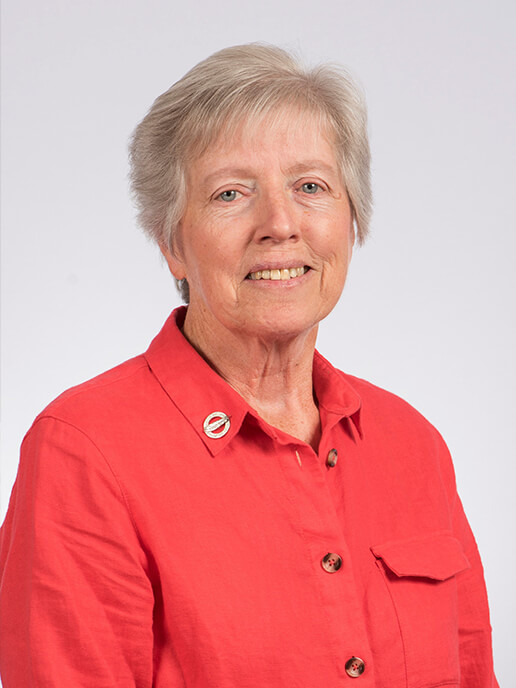
Current Council Members
Creative and results-orientated thinking are just a few of the tools that Andrea relies on when she wears the many different hats she is positioned to wear at any given moment. One is as a sessional lecturer at Thompson Rivers University where she teaches Natural Resource Policy and Planning. Her academic background includes a Political Science and Philosophy degree from the University of Victoria and a Master’s degree in Public Policy from Simon Fraser where she studied natural resource policy and economics and researched different approaches to habitat mitigation in BC and across Canada.
On the ranch near Savona, Andrea integrates her lifelong passion for wildlife and habitat conservation into their work. By drawing on her experience as a rancher and background in public policy, Andrea serves as Policy Advisor to the BC Cattlemen’s Association. She has also volunteered her time to multiple boards including serving on the Board of the Canadian Agriculture Policy Institute, the Board of the Kamloops Food Policy Council, the Young Cattlemen’s Council of Canada, and has sat on the ad-hoc committee comprised of representatives from Canadian Cattlemen’s Association and the Nature Conservancy of Canada to seek new conservation financing solutions to facilitate the provision of Ecological Goods and Services.
She is currently coordinating the Target One Funders Collaborative, which works to support Canada reaching its terrestrial habitat conservation targets under the international Convention on Biological Diversity, and works in the environmental sector with Ducks Unlimited Canada. As a mother and avid outdoorswoman, Andrea has a passion to see her children continue to enjoy the outdoors just as she does.
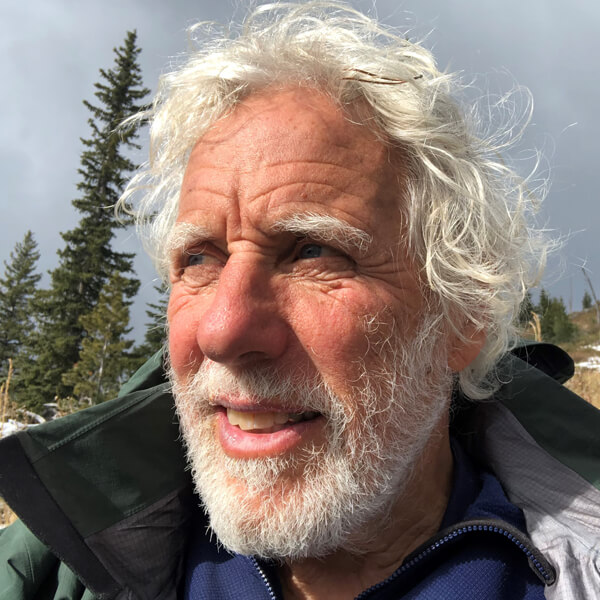
John has a long history of being actively involved in wildlife and habitat issues in the province. As a representative of Wildsight for over 30 years, he has developed strong partnerships with many environmental NGOs from across the province and is a trusted member of BC’s environmental community. John held the position of Executive Director of Wildsight for a decade and is presently Wildsight’s Conservation Director.
While his focus has largely been on the Kootenays, John has engaged broadly with multiple sectors and provincial representatives on wildlife and land use issues. He has participated in field research including projects such as the Purcell Mountain caribou, Purcell grizzly bear, East Kootenay moose, Flathead grizzly and the West Slope wolverine studies. John has extensive experience with forest planning and in consulting with planners and field staff on best management practices for wildlife. His insight working with industry, ministry staff, wildlife professionals, a broad range of stakeholders, as well as First Nations on multiple land use and wildlife initiatives is a welcomed asset to the advisory council.
Adam holds a PhD from the University of British Columbia and is currently an Assistant Professor and the Canadian Research Chair in Wildlife Restoration Ecology at UBC-Okanagan in Kelowna. His research group, the Wildlife Restoration Ecology Lab, works to restore important relationships in nature’s food webs, including those between people and wildlife. Some of his group’s research includes studies involving mule deer, caribou, moose, Roosevelt elk, mountain goats, wolf, bighorn sheep, bison, cougars, boreal caribou, and wolves, as well as studies on bear and human interactions, chronic wasting disease modelling, and policy analysis and numerous other studies with the Provincial government.
Adam has won many awards throughout his career as a biologist and his work has been published in numerous journals. Formerly, he has worked as a fishing guide, resource and field technician working on projects across western Canada, and in various positions with environmental groups, governments, consultants for resource extraction companies, and First Nations. Adam’s desire is to ensure future generations are given the opportunity to continue to thrive off the privileged access to nature that we all currently enjoy.
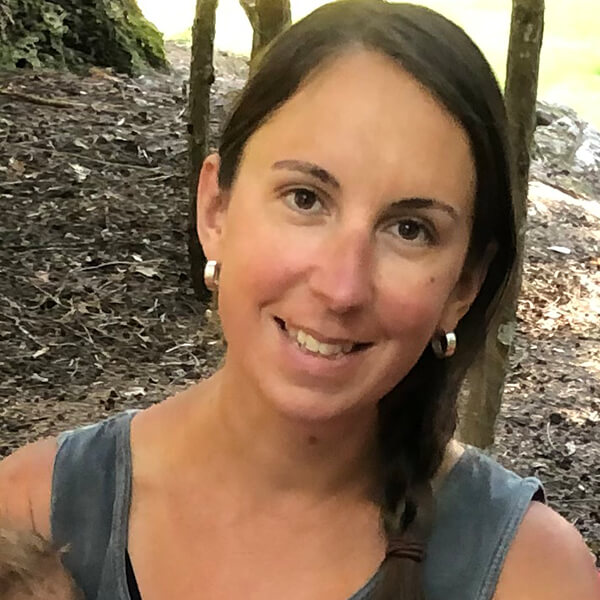
Cailyn’s career as a senior wildlife biologist, resource manager, and liaison began with a Certificate in Advanced Geographic Information Systems (GIS) for Environmental Management from the University of Toronto. She later got her Bachelor of General Studies with Arts and Science Designation from Athabasca University with an Honours Thesis in Environmental Science and continued studying by obtaining a Master’s in Environmental Practice from Royal Roads University in Victoria.
Currently Cailyn is working within the syilx Okanagan Territory as a Natural Resources Operations Biologist for the Okanagan Nation Alliance. She has been partnering with the Provincial and Federal government to develop projects and initiatives that support strategic approaches for implementation of UNDRIP and DRIPA as it relates to natural resource management in syilx Okanagan Territory. She also oversees the development and implementation of programs and projects, as well as the policies, and legislative or regulatory initiatives that have bearing on natural resource management. Her role also involves liaising with syilx Okanagan leadership on strategic natural resource management objectives.
Prior to her role with the Okanagan Nation Alliance, she worked as a Senior Ecologist & GIS Specialist with the Lands and Natural Resource Department of the Penticton Indian Band.
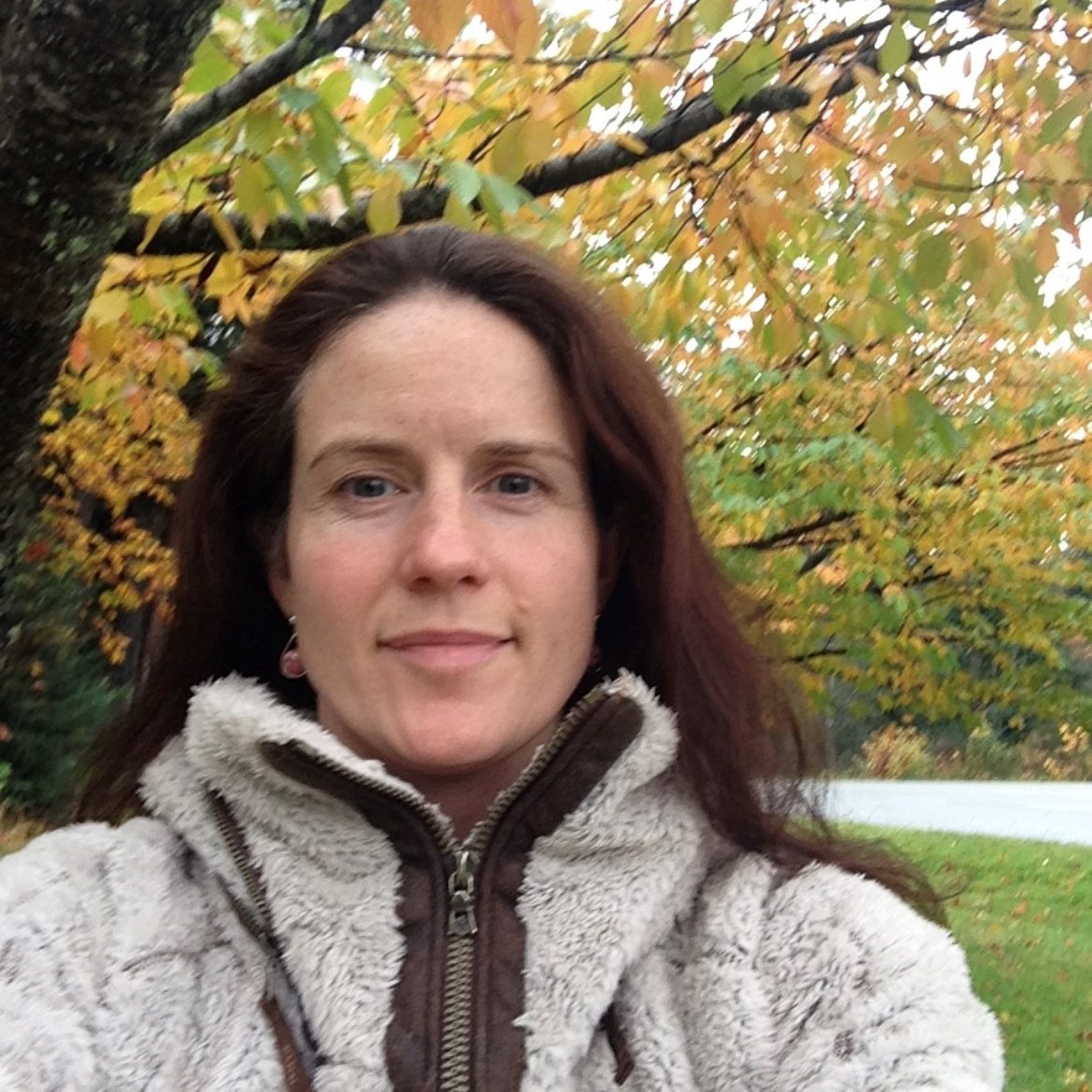
Megan is a registered professional forester (RPF) and professional biologist (RPBio) and is the present CEO of the Private Forest Landowners Association, a non-profit organization dedicated to the responsible stewardship of BC’s private forest lands whose members strive to balance environmental values, community interests, and economic realities.
Megan’s involvement in wildlife and ecosystem management decisions spans 25 years throughout North America working for sectors that include environmental non-profits, the BC provincial government, Canadian federal government and private consulting for First Nations, industry forest licensees, mining and the wind power industry. Currently she is a provincial appointee with the North Island-Coast Development Initiative Trust and an elected member on the College of Applied Biology Council.
Raised on Vancouver Island as the daughter of a biologist, she grew up immersed in the BC wilderness which embedded her passion for healthy wildlife and ecosystems far before she even started her post secondary studies. She has been recognized with special honours including the Premier’s Award for contribution towards the 2010 Winter Olympics Forestry Pavilion and the President’s Award from the Association of Professional Biology.
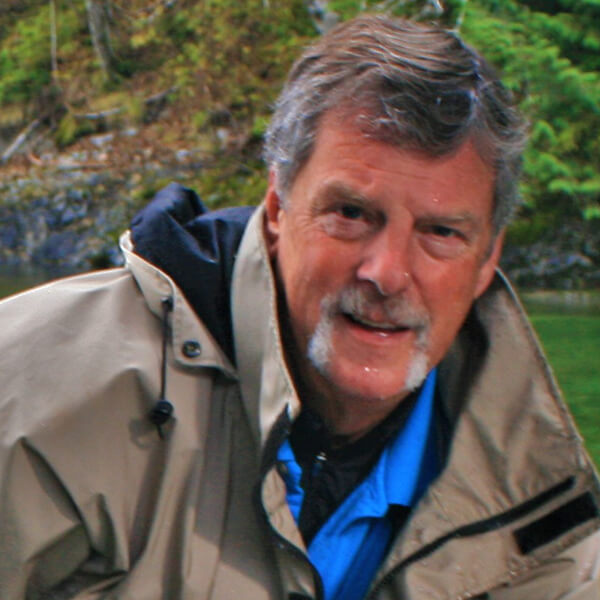
For the past 13 years, Shaun has been the president of Steel Ram Consulting, a nationally accredited and internationally recognized program that provides a comprehensive study of electrical principles and practices. His work is influenced by his long-standing involvement in conservation and sustainability initiatives.
The long list of the initiatives and organizations that Shaun has been either a staff member, board member, or panel member includes the Pacific Salmon Commission, the Seymour Salmonid Society, the Skagit Environmental Endowment Commission, the British Columbia Wildlife Federation, the British Columbia Conservation Foundation, the Cheakamus Ecosystem Restoration, the North Shore Streamkeepers, the Coho Society, North Shore Fish and Game, the Lower Mainland Elk Recovery Program, the Salmon Enhancement Habitat Advisory Board, the Sport Fishing Advisory Board, and the Family Fishing Society of BC.
Shaun’s outstanding contribution as an ‘unsung hero’ by volunteering his time to improving outdoors activities was recognized when he was awarded the 2016 Tim Jones Community Achievement Award by the North Shore community.

Alyssa was born and raised in Fort Saint James located in North Central BC. She is First Nation member to Nak’azdli Whut’en and holds an elected council position where she is involved in Wildlife, Forestry, Mining, Major Projects and Stewardship tables. Alyssa is also employed with the First Nations Health Authority as the Primary Care Coordinator for the Northern Region and owns and operates two businesses (Yus Cho “Big Wolf” Enterprises & Yus Cho Environmental). Alyssa began her post-secondary education with Nursing and graduated with Business, she incorporates both of these skill sets in her professional life.
Alyssa is heavily involved within the Carrier Sekani First Nations (CSFN), where they have done some leading work in partnership with the Province of BC on Wildlife Collaboration Plans, Caribou Enhancement Projects, changing the Forest Management Practice’s within the CSFN Territory which focused on sustainability, stewardship and minimizing and mitigating cumulative impacts across the territory to ensure and promote healthy, vibrant forests in the territory for the futures to come.
Alyssa spends every minute she can out on the land and in her families Keyoh (traditional territory) hunting, hiking, fishing, snowmobiling, gathering and spending quality time with family and friends. She is very excited to be a part of the Minister’s Wildlife Advisory Council and to incorporate traditional knowledge and stewardship with western science to improve Wildlife Stewardship and Conservation across BC!
Yun whuts’inli “Taking Care of the Land” – Carrier Language
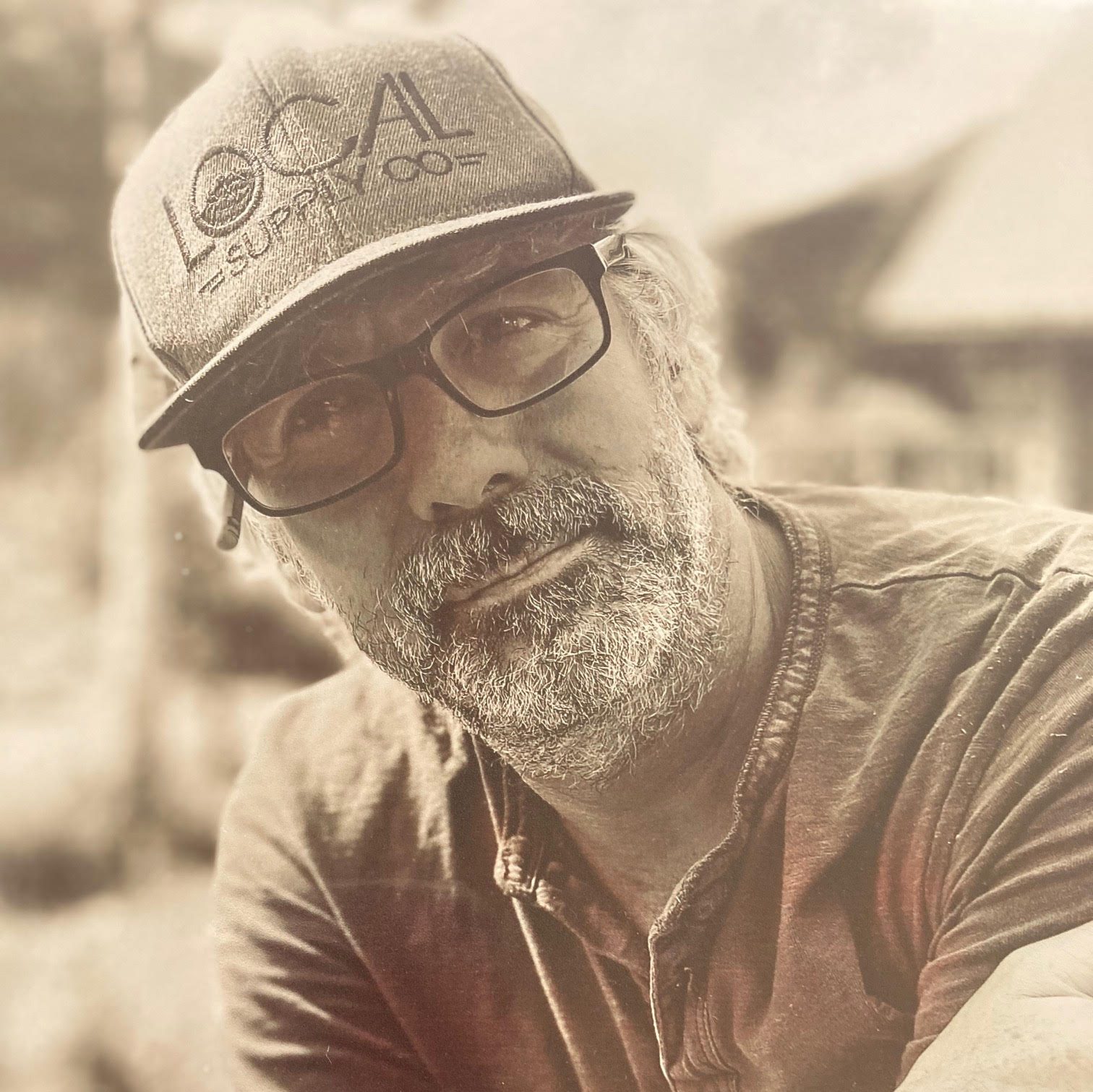
Jason is the Director for the Gitxsan Laxyip Management Office in Hazelton, BC. This land and resource office provides support and resources to the Gitxsan Simgigyat (Chiefs) and Wilp members to make informed decisions on the land base. Jason is originally from Newfoundland and a member of the Qalipu Mi’kmaq First Nation. He moved with his family to the Northwest in 2013 to enjoy the beautiful outdoors and get away from city living and commuting. He lives near Smithers BC with his artistic wife, Sarah and three active kids, Corwin, Anika and Tommy.
Jason started his education doing Fine Arts but found himself drawn to natural resource management. He started his forestry degree at Memorial University in St. John’s Newfoundland and finished the science degree at the University of New Brunswick, Fredericton in 1997 with a minor in ethics. He also completed a Masters in Fish and Wildlife Science at New Mexico State University, USA studying prairie dogs and learning ecological restoration and geomatics, while rock climbing and bird watching on weekends. He is a registered as a professional forester (RFP) and biologist (RPBio) in BC.
Jason has worked in natural resource management for over 25 years. Throughout his career he has worked many different fields of the natural resource sector including mining sites, forestry and woodlots, conservation and protected lands, biodiversity offsets and wildlife and wildlife habitat projects. His work has taken him across Canada from coast to coast to the high Arctic as well as internationally in the USA, Caribbean and Central America. He has worked for environmental NGOs, First Nation communities, consultancies and various government. He feels strongly that Indigenous Rights need to be recognized and that the jurisdiction and management of the natural resources lies with the Indigenous Peoples who are the owners of their land. He is very interested and keen as Indigenous peoples build their capacity and knowledge with the intersection of incorporating Indigenous Knowledge into western science. In Mi’kmaq this is called Etuaptmumk (Mi’kmaq) – Two-Eyed Seeing, which is a concept and philosophy that requires exploration, thought and implementation.
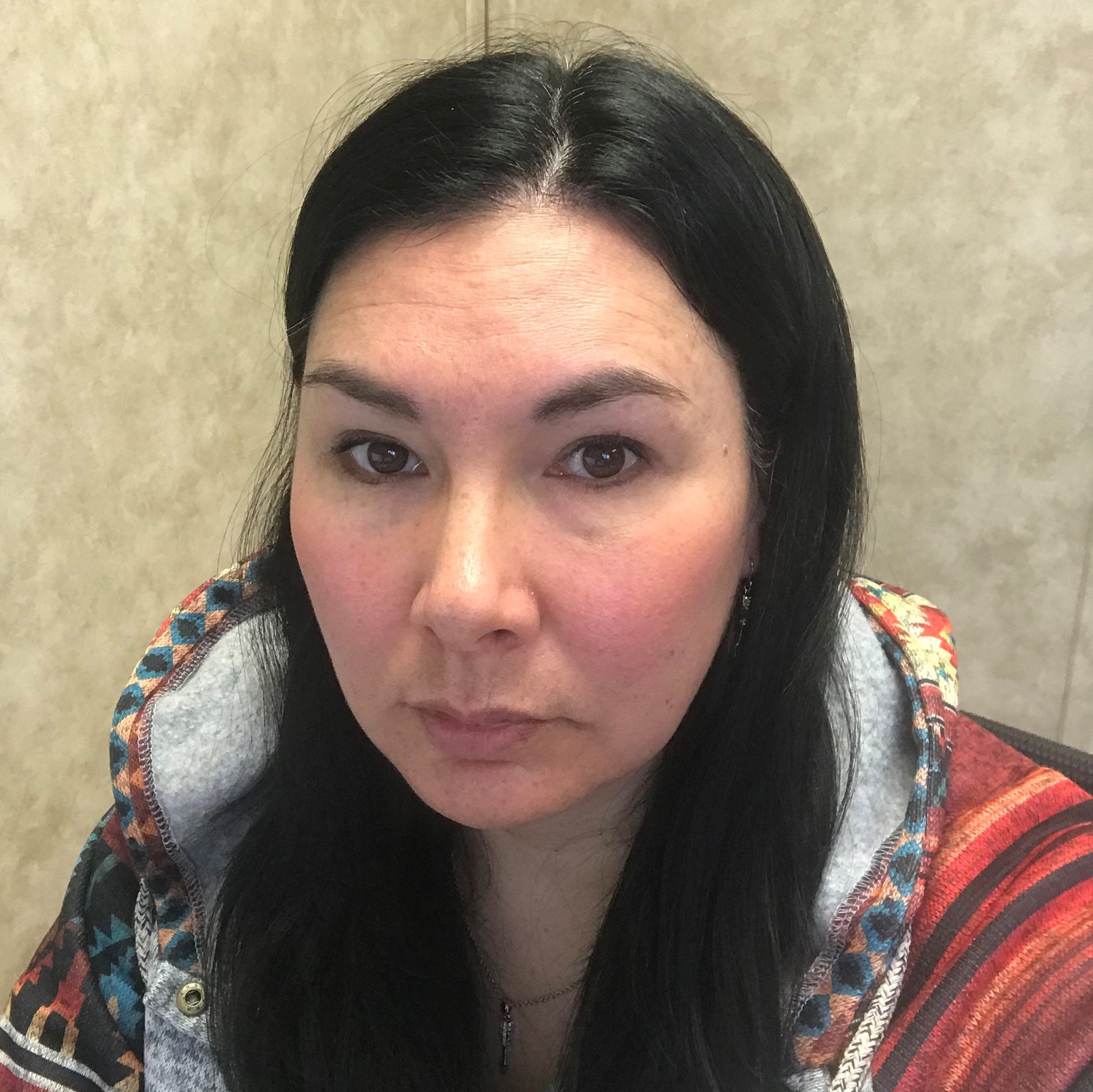
Naomi Owens-Beek comes from the community of Moberly Lake, BC, she is a proud Cree, Dunne-Za, Treaty 8 and Canadian woman from the Saulteau First Nations (SFN) and is the honored mother of Spencer Ron Beek. She belongs to the Napoleon Family of SFN. She graduated from the Nicola Valley Institute of Technology and received a diploma in Natural Resources 1999. She then completed her Bachelor of Science from the University of Victoria, majoring in Biology 2008 and registered to the College of Applied Biology 2009 and is now a Registered Professional Biologist as of 2019. Naomi is currently the Treaty Rights and Environmental Protection (TREP) Manager for the Saulteau First Nations. She sits on the Board of Directors for the Twin Sisters Native Plant Nursery, a Society Director for the Nîkanêse Wah tzee Stewardship Society, a Board Member for the Fish and Wildlife Compensation Program, a Council Member of the Minister’s Wildlife Advisory Council, and is a part of the First Nations-BC Wildlife and Habitat Conservation Forum.
Naomi’s long-term goal is to make connections between biology’s western science and First Nations values of the landscape. She holds high regard for the rights and Spirit and Intent of the Treaty 8 Nations.
Kinanaskomitin (Thank you)
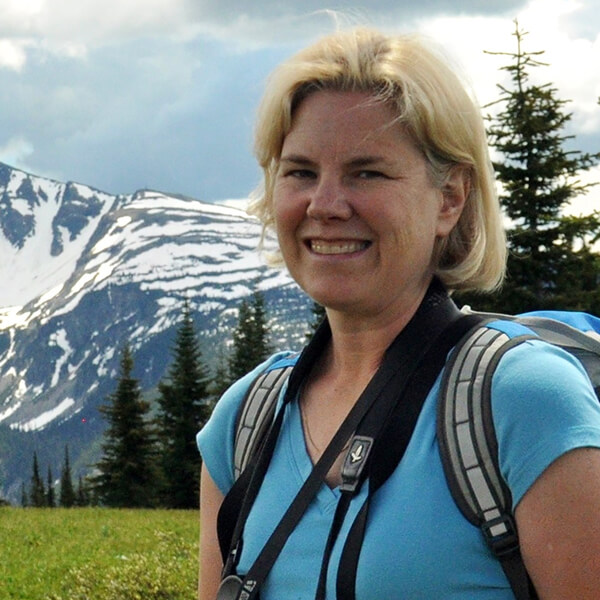
Kari is a professional wildlife biologist currently working with Canfor. She brings 25 years of experience in the forestry industry in Western Canada, and has a PhD from Oregon State University.
Kari has an extensive history of successful collaboration and project leadership with Federal and Provincial Government, First Nations, industry, academics, and stakeholders throughout BC in the development of evidence-based legislation and forest management strategies that conserve wildlife habitat. Some of these collaborative projects include developing a migratory bird strategy for the forest industry in the interior of BC, the Pyramid Benches Fuel Reduction Project in partnership with Parks Canada in Jasper National Park, and the High Conservation Value Areas Project in the East Kootenay with First Nations, local environmental groups, and government, just to name a few. She has authored numerous scientific publications on wildlife, including moose, mountain goat, caribou, northern goshawk, and songbirds.
Kari’s approach centres on the use of evidence-based results to inform effective policy and practices while considering the cultural, social, and economic factors involved, in order to create positive habitat outcomes for wildlife and practical, cost-effective strategies for forestry.

